We would like to honour traditional sailing deckies. You are the hands on both line and paintbrush, the lookouts at our bows and the checkers of our bilges. Your knowledge is broad and your skills numerous, and without you this industry would fall on its arse. Here’s to you!
Why Be a Deckhand?
Being a tall ship deckhand was both the steepest and longest learning curve I’ve ever experienced. Steep, because you have to learn very quickly to avoid standing around like a lemon (…why do lemons stand around? Answers on a postcard…). Long, because there is just SO MUCH TO LEARN. When you reach a level with one ship, you might be off onto another where everything is done differently.
It’s also a role that requires great reserves of stamina (physical and social), endless good humour and a pretty thick skin. The hours are long and you are never really ‘off’ until you’ve signed off. The pay is at best low, and at worst non-existent.
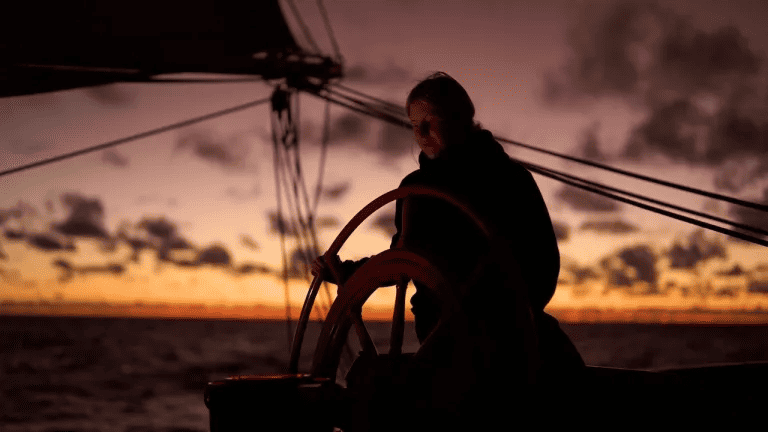
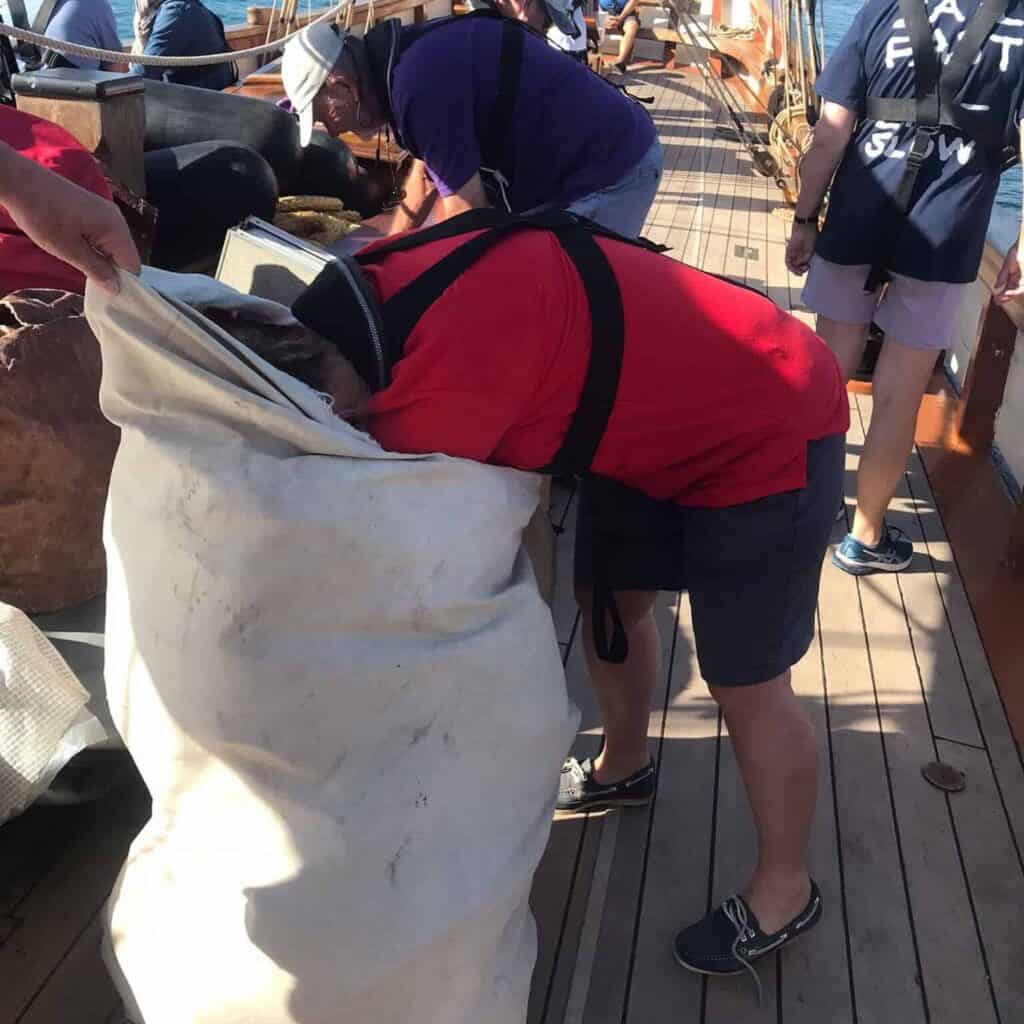
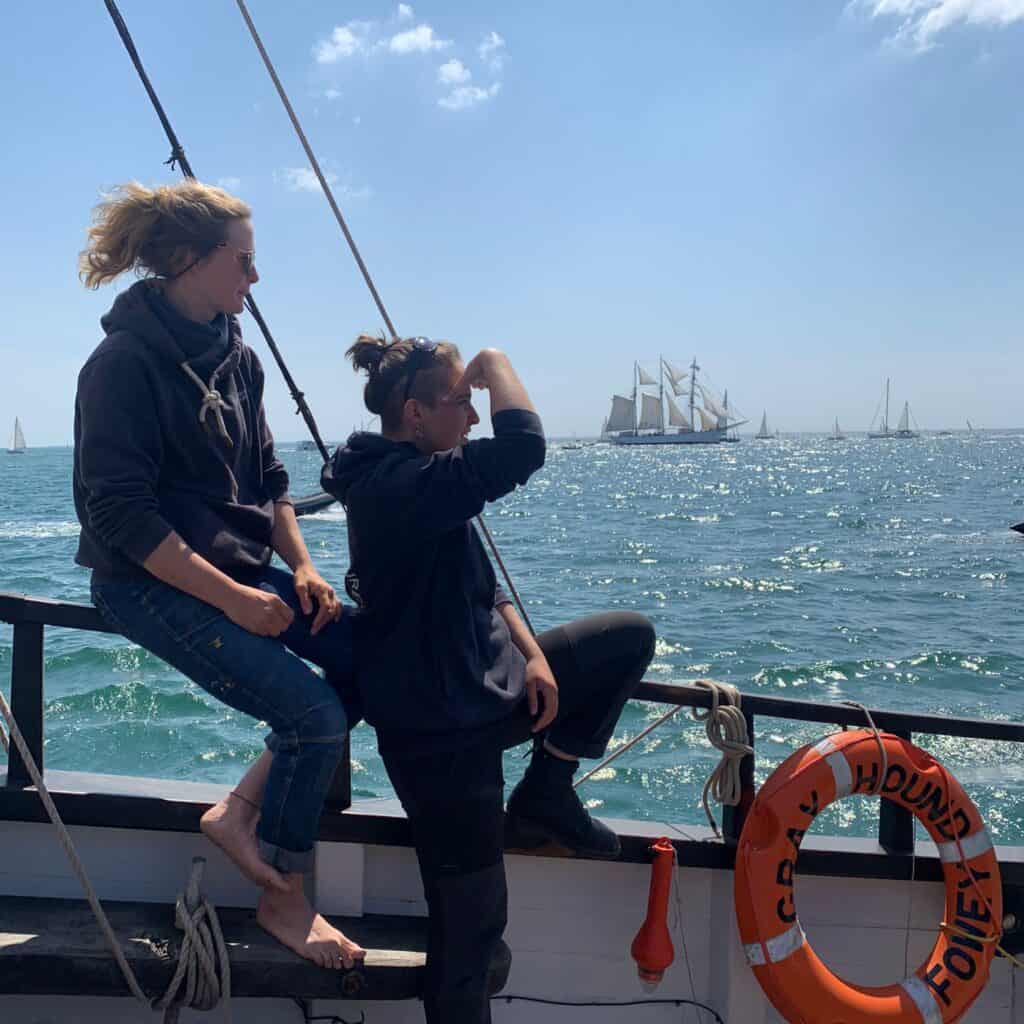
So why on earth would anyone do the job?
Speaking personally, the severity of the learning curve was part of the appeal. Being a bit of a masochist there was an attraction to the unclimbable mountain of knowledge and skills required to truly master the role (on which more below…). The truth, of course, is that you never can have all of it, but you can become useful enough to be useful, and that is good enough.
The camaraderie can be exceptional too. Most of my nearest and dearest friends were made forward of the mast. Working so hard in such potentially trying circumstances has a way of bringing people together.
There is also immense pleasure in the ‘job-and-knock’ nature of deckhand work (as in you do the job and then you knock off). Yours is not the responsibility of the forward passage planning, the creation of meal plans, the endless management of the maintenance to-do list. Yes, you might have to furl the t’gallants in a raging gale…yes, you might have to crawl under the sole-boards and scrub the grey-water tank with a toothbrush… yes, you might not have slept more than three hours straight in three weeks…but as a rule when the mooring lines are fast and the deck is scrubbed, you can go to the pub.
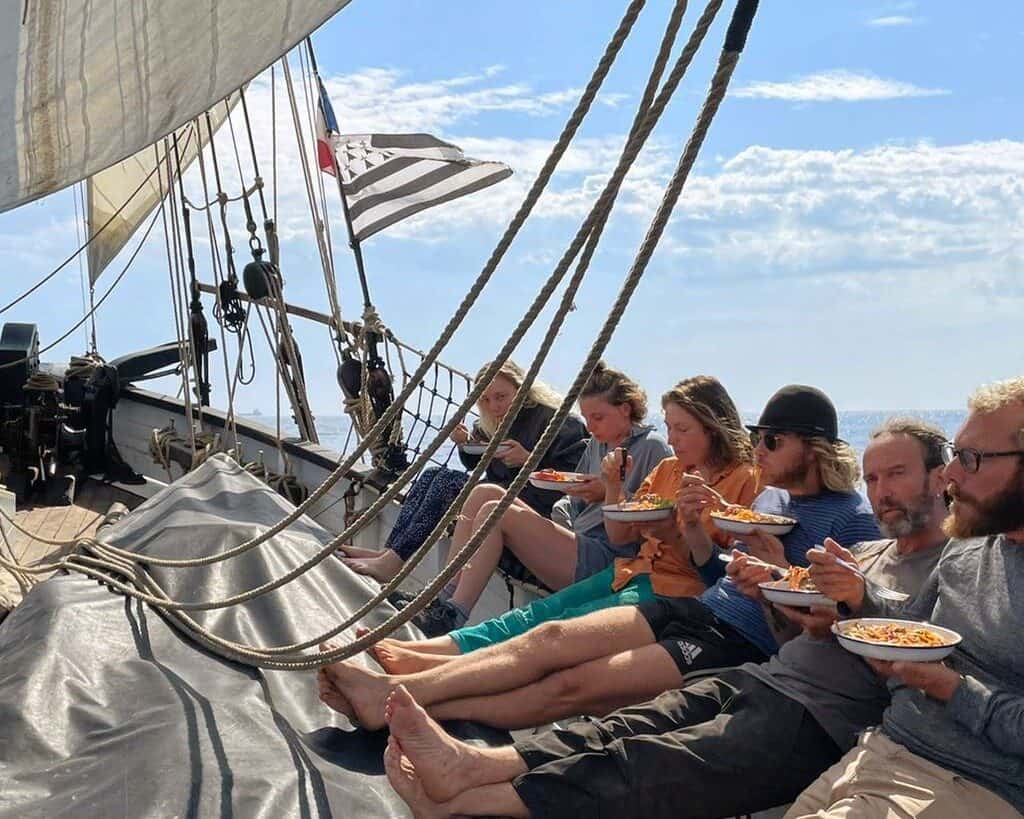
Skills Required to be a Good Deckhand
A good deckhand is at action stations before the officer has called the order. They see something that needs doing and they do it. They are the eyes, ears, hands and muscle of the ship. Their role includes, among other things:
Helming
Skippers might get the glory and be seen to ‘drive’ the ship, but the majority of the time it’s a deckhand doing the steering. They must be able to reliably hold a course, and steer to either the wind or a compass heading, as well as make course alterations and avoid hazards like pots and flotsam. Many Classic Sailing guest sailors have spent time at the helm themselves, and if you have you will know that this is no mean feat. Every ship handles differently, and is very easy to over-steer, over-correct and up with a course like a flailing ping-pong ball.
Sail Handling
Unfurling, setting, trimming, bracing, reefing, stowing….a deckhand must be able to instantly find the right line for the right job and handle it safely. A square-rigger can have over 100 control lines to deal with, and you might be hunting for them in the dark, so this is easier said than done. A good understanding of the wind and sailing theory are also required, in order to get the most from trimming the sails and balancing the rig.

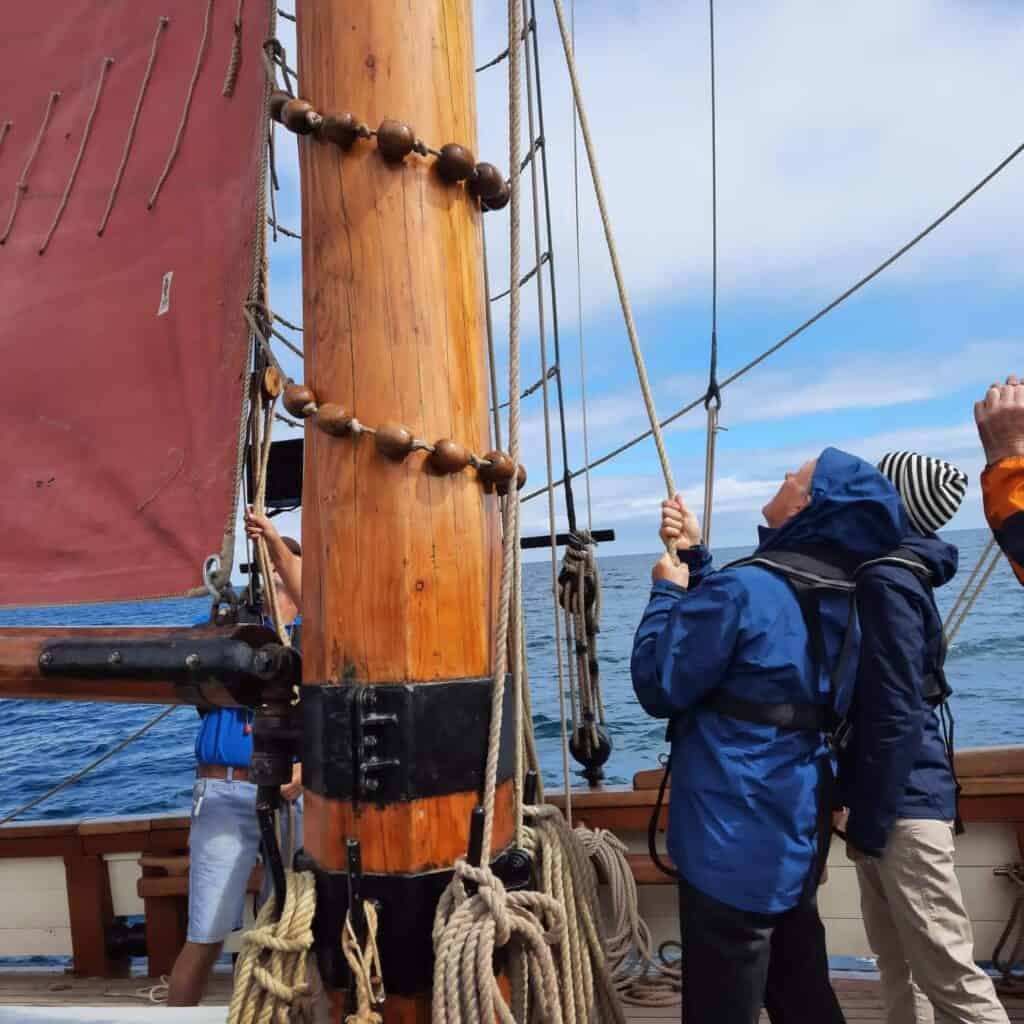
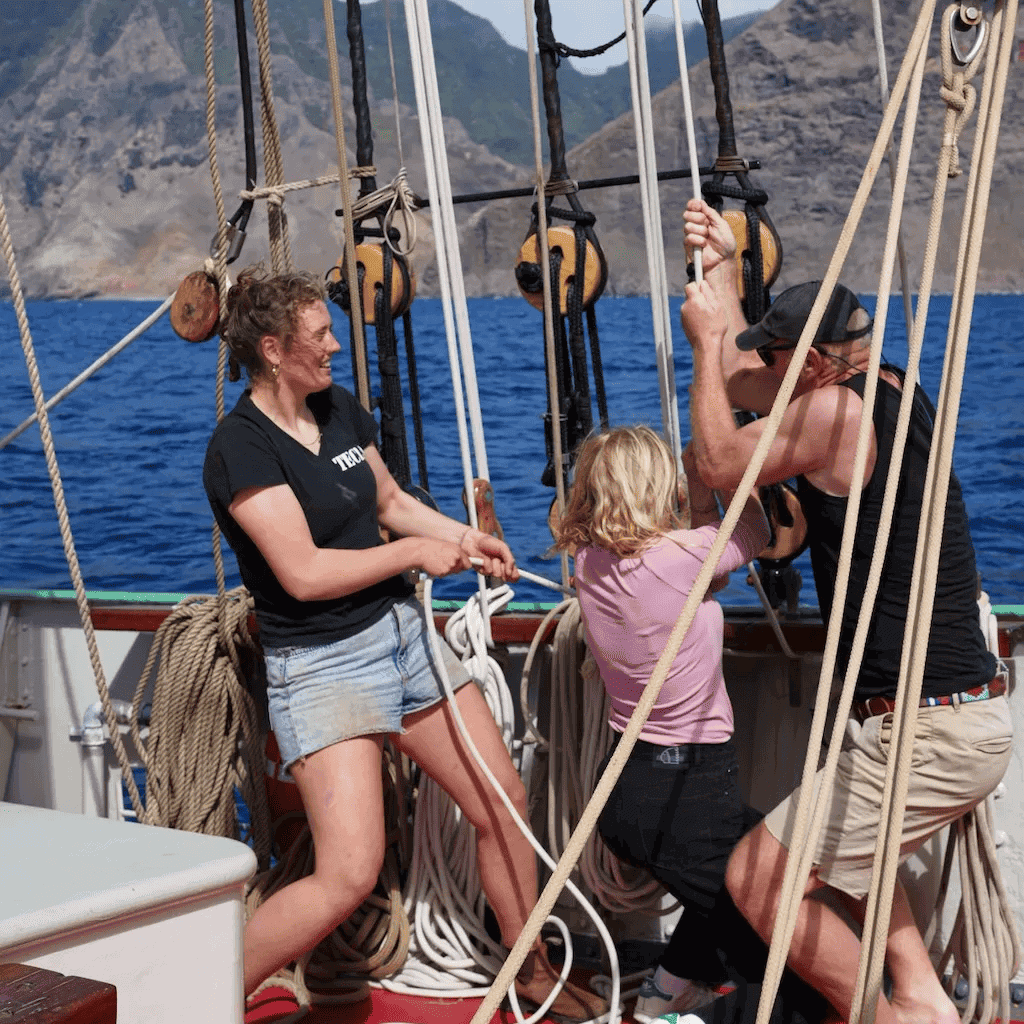
Keeping Lookout
Deckhands must be able to keep a reliable watch and identify hazards quickly and accurately. They need a good knowledge of maritime collision regulations and the lights and day-shapes displayed by other vessels, as well as be able spy a half-submerged milk-bottle float on a lobster pot in time for the ship to steer round it.
Working Aloft
It’s great fun climbing the rig, and we would encourage everyone to give it a go. If you have, you’ll know how tricky and wobbly it can be. That’s in conditions which were deemed safe and stable enough to take novices climbing.
Deckhands must be able to climb for everyday unfurling and gasketing, in fine weather, but also when things go wrong. Things don’t tend to go wrong in the rig when it’s a nice day with a gentle sailing breeze. Working aloft in difficult conditions takes courage and a keen head for safety, plus strength, balance and teamwork.
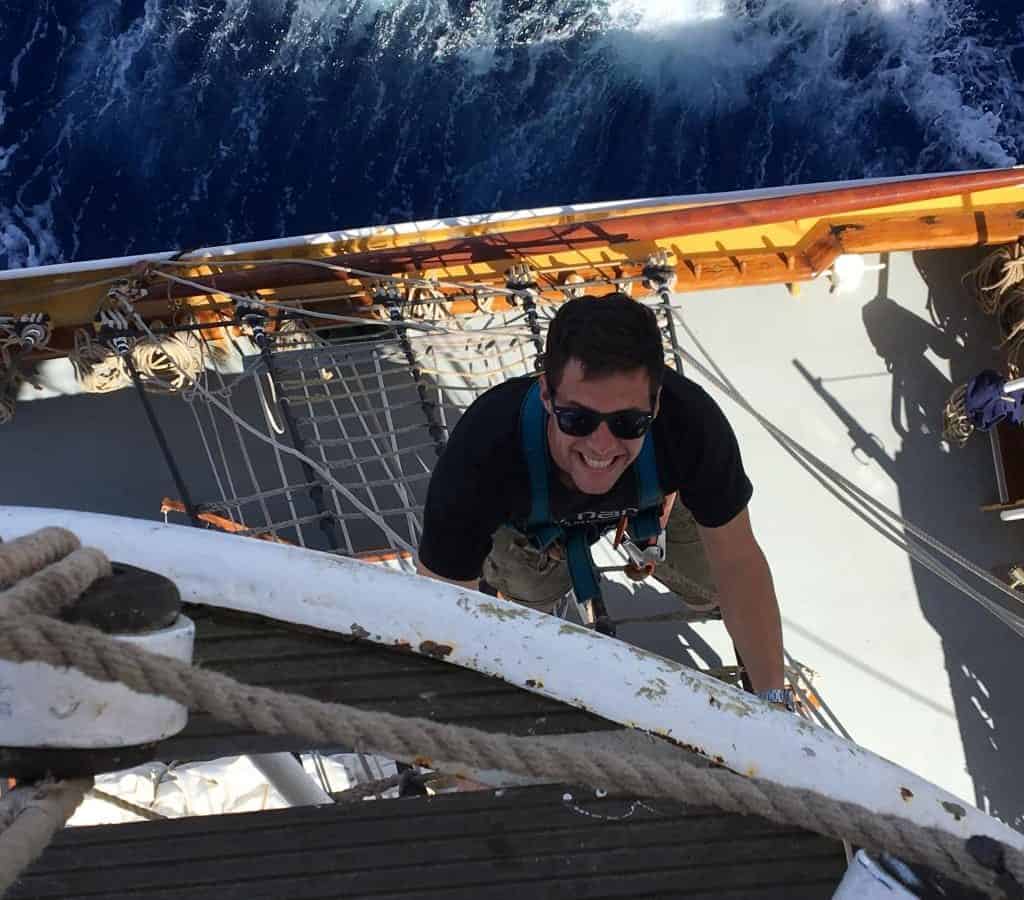
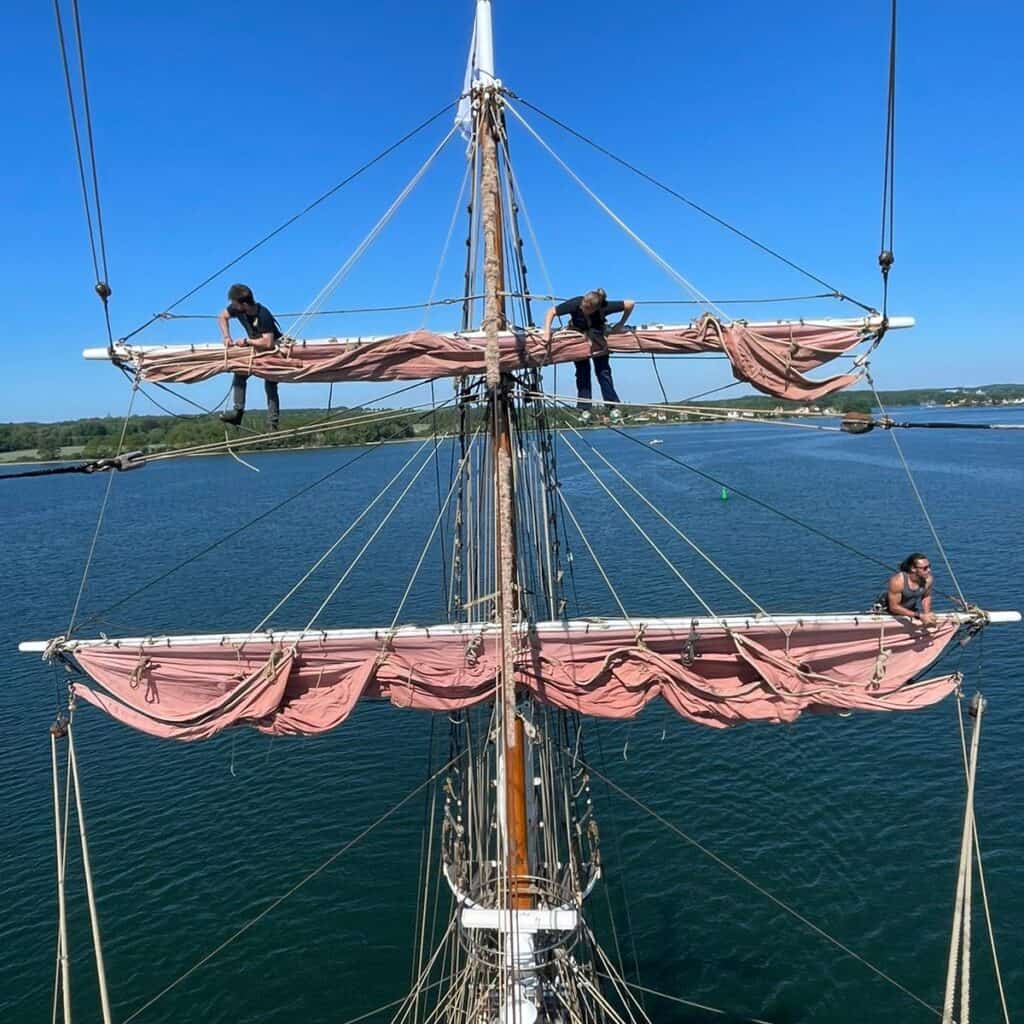
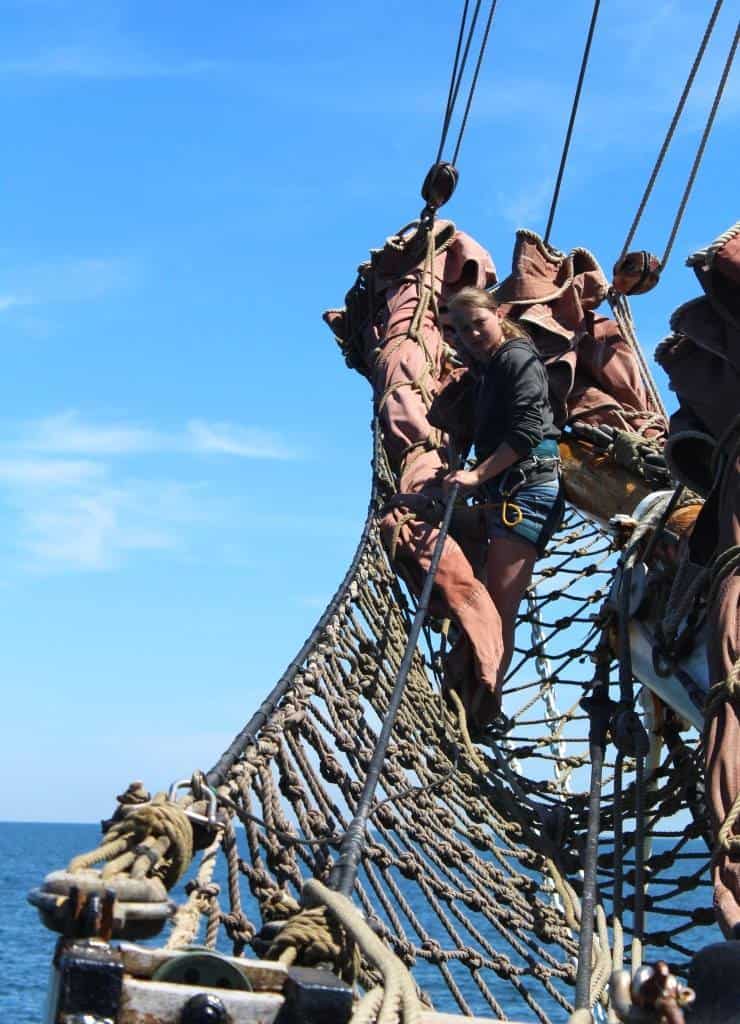
Mooring & Anchoring Operations
You may have seen our article on mooring options when the long trick’s over. There are countless ways to park a ship. Deckhands must be adept at the use of an anchor windlass, able to handle mooring lines safely when they’re under immense load and accurate at estimating distances to communicate to the helmsperson. There is nothing quite so stressful as the high-speed tying of a secure round-turn bowline in 50mm line through the ring atop a swaying mooring buoy, from the skittish platform of an inflatable tender, in the few seconds before the weight of a ship in a flood tide comes onto it.
Guest Training & Supervision
In addition to all of the above, a deckhand must also be able to share their knowledge in a friendly and accessible way. They must get guests involved in sailing the ship, find a role for each person in each operation according to strength and ability and not only ensure they are safe but that they are having fun. Good guest training and inclusion is a fine art, and when done well it is seamless.
We’d love to hear your stories of sailing with professional crew who helped you feel truly part of the team. You can get in touch HERE.

Technical & Bilge Rounds
Deckhands are often the ones completing the regular checks when a ship is at sea. These can include bilge water level checks, general safety rounds and engine-room checks. A deckhand must have enough working knowledge of the engine and all other systems on board to recognise and report on anything out of the ordinary or concerning (as well as being able to move silently through a rolling ship in rustling oilskins, to avoid waking the off-watch!).
Emergency Procedures
Got the hang of everything when it’s plain sailing? Great, now what about if there’s a medical emergency, man overboard, fire, spillage or another vessel in distress? Deckhands need to get to grips with their role in all such situations, so that they can respond quickly and efficiently when instructed by an officer. They might not be responsible for making the decisions, but they must know the procedures inside out and be able to carry them out calmly.
They might need to dash up the rig to keep eyes on an MOB, don a fire suit and oxygen tank and take a hose into a smoke-filled hold, launch life-rafts, or rapidly reduce sail short-handed. Oh, and they need to understand everyone else’s roles too, in case one of them is indisposed.
Cleaning
There are many less-than-glamorous aspects of deckhand work, not all of which I will go into as some of you might be reading this over breakfast! Needless to say it’s the deckhands keeping everything ship-shape and shining, often behind the scenes and often unnoticed. All that and the daily deck-scrub workout!
Maintenance
The maintenance of a traditional sailing vessel never stops. Rig checks, running repairs, paint touch-ups and the never ending battle against chafe (in the rig that is!).
And when the ship’s not sailing? That’s when the real work begins! Deckhands during a refit period will undertake everything from paint-stripping to sail-mending, pitching to rig replacement. They must be excellent all-rounders and comfortable with a wide range of power and hand tools. Jacks of all trades and masters of most of them.



